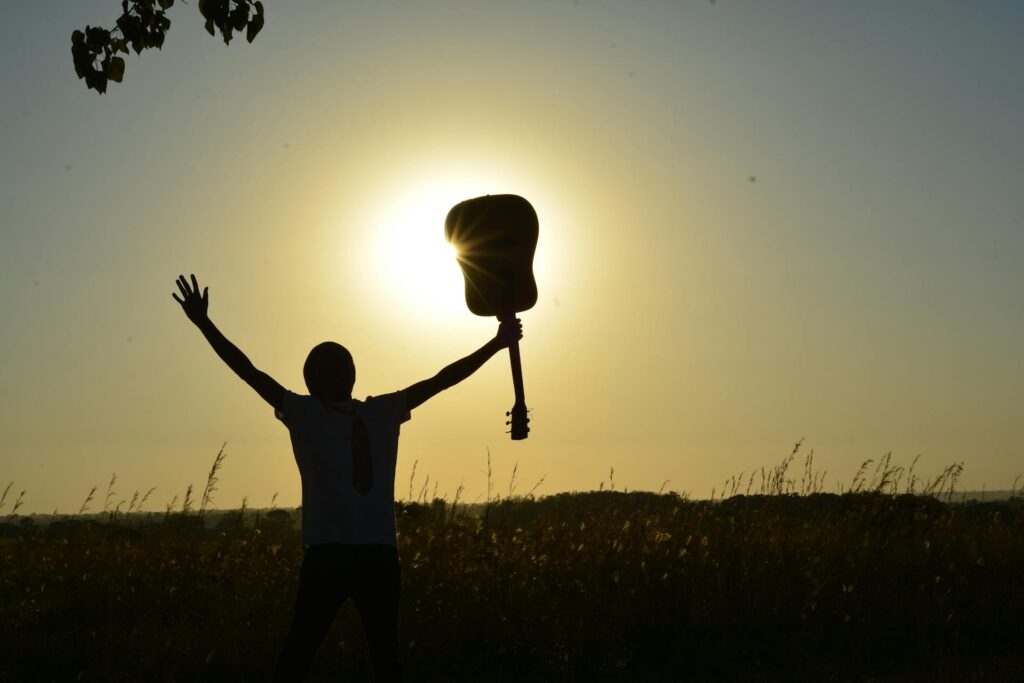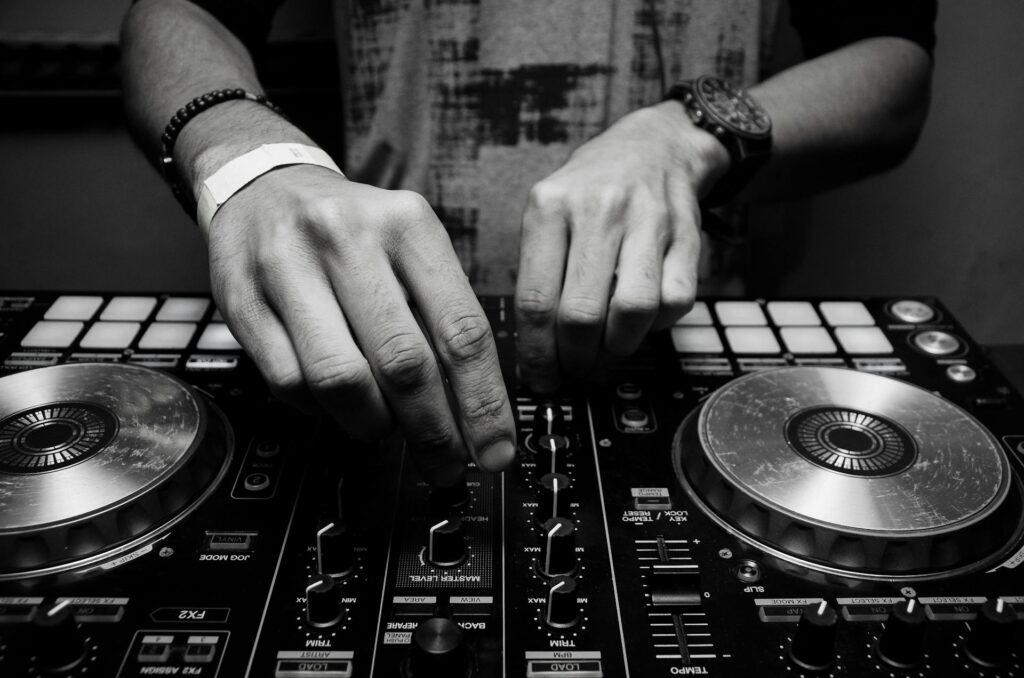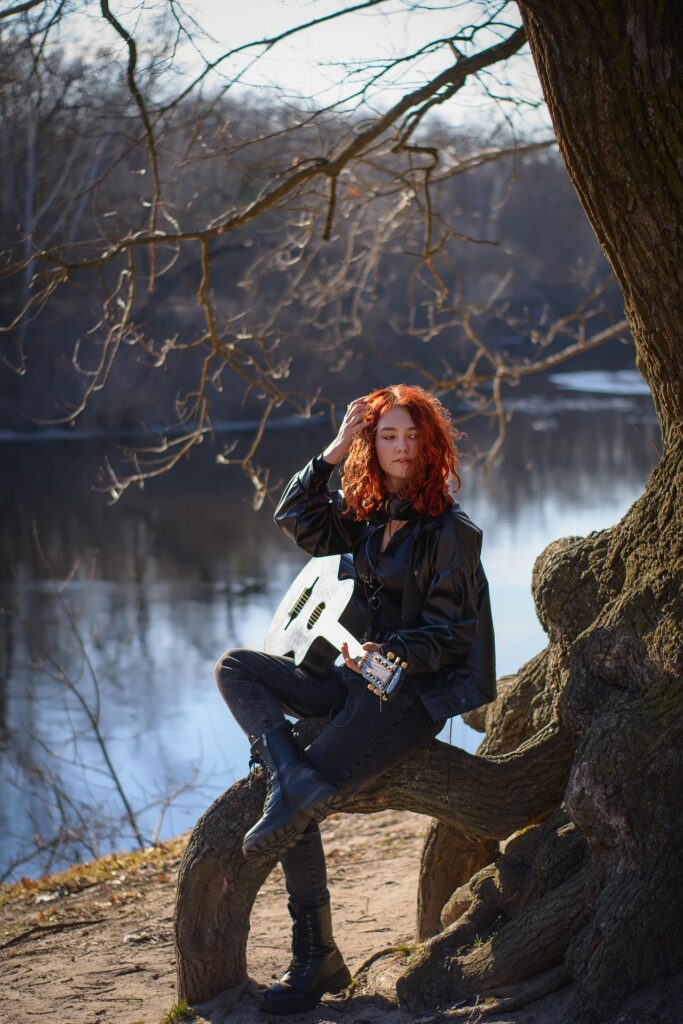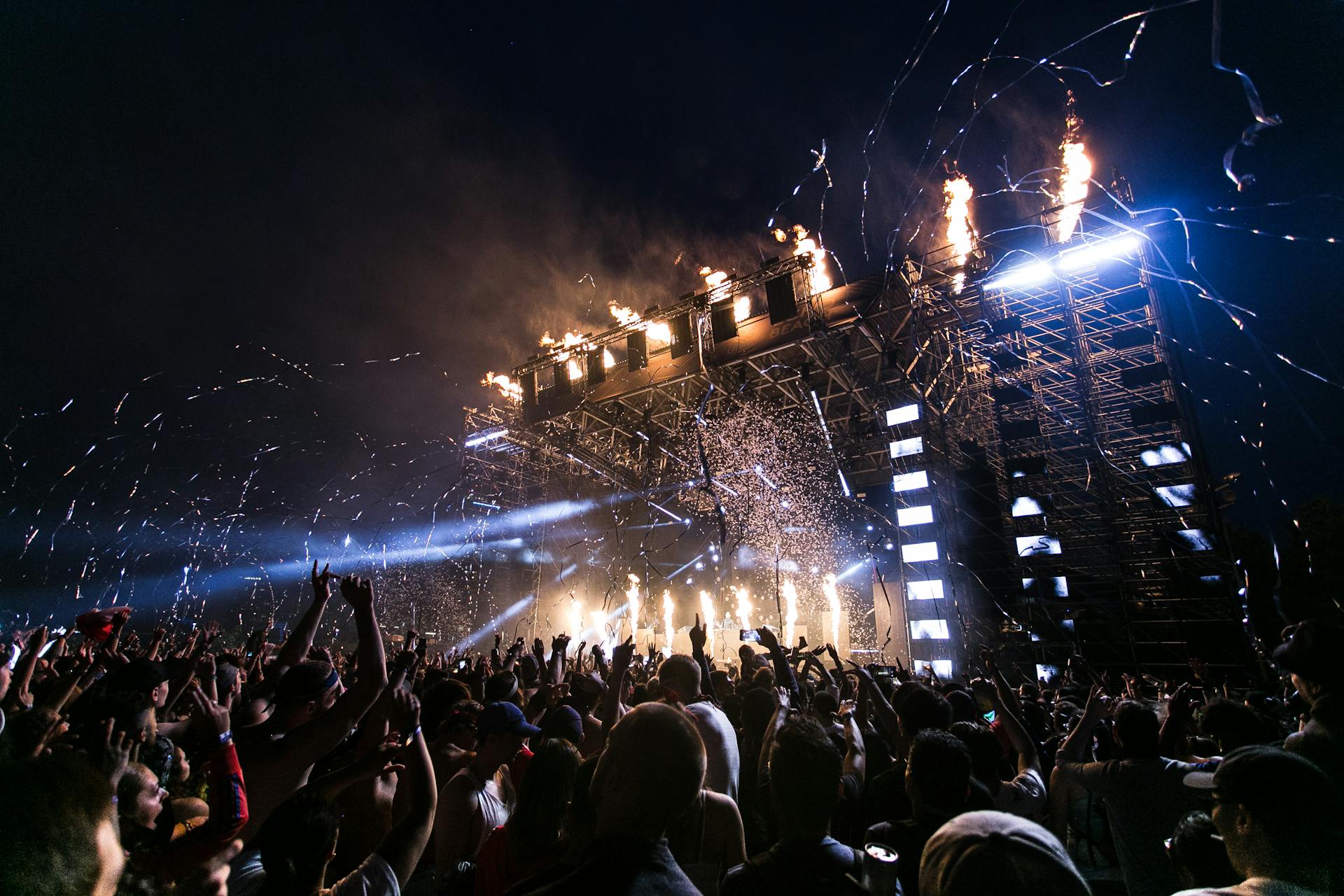Introduction
Artificial Intelligence (AI) is no longer just a behind-the-scenes production tool — it’s becoming an artist in its own right.
From AI-generated Drake and Taylor Swift tracks to virtual performers topping Spotify charts, 2025 is redefining what it means to “make music.” The fusion of human creativity and machine intelligence has brought both excitement and controversy to the U.S. music industry.
As algorithms learn to compose melodies, write lyrics, and even mimic iconic voices, America finds itself in the middle of a cultural revolution — one where AI doesn’t just shape music, it helps create it.
🎹 AI’s Expanding Role in Music Creation
AI’s influence on the music industry extends far beyond production software. It now touches every part of the creative process — from writing and mixing to curation and fan engagement.
Let’s break down how it’s transforming the U.S. music scene in 2025:
🎤 1. Voice Cloning and Vocal Deepfakes

AI-powered voice cloning tools like ElevenLabs, Voicemod, and Udio have made it possible to recreate the voices of famous artists with astonishing accuracy.
Fans have already witnessed viral examples — from “AI Drake x The Weeknd” tracks to AI Lana Del Rey duets that fooled millions before being flagged by record labels.
While these creations raise ethical questions, they also open new possibilities:
- Independent producers can collaborate virtually with voices resembling top artists.
- Labels can preserve a singer’s voice posthumously for new releases.
- Fans get immersive, creative remixes that blur the line between homage and innovation.
🎧 “AI doesn’t steal voices — it expands them,” says Los Angeles-based producer Malik Rivers. “It gives every bedroom creator access to a superstar sound.”
However, this innovation has fueled an ongoing debate over consent, ownership, and royalties, especially as AI-generated tracks start earning real revenue.
✍️ 2. AI Songwriting and Lyric Generation
AI isn’t just helping producers mix beats — it’s writing the words, too.
Models like ChatGPT, Suno, and MuseNet can now generate fully structured songs — including lyrics, chord progressions, and even suggested instruments — in seconds.
Major studios and indie artists alike are leveraging these tools to:
- Brainstorm lyrical ideas based on mood or theme.
- Speed up songwriting for commercials, film scores, or TikTok campaigns.
- Create adaptive background music for gaming and streaming platforms.
In Nashville and Los Angeles, AI-assisted songwriting has already become part of the workflow. Some artists even credit AI for helping them overcome writer’s block, comparing it to having a “virtual co-writer” that never runs out of ideas.
Still, human emotion remains irreplaceable. As Grammy-winning songwriter Julia Michaels said, “AI can give you structure, but it can’t give you soul — that’s our job.”

🎧 3. Personalized Soundtracks and Emotion-Based Playlists
AI is not only shaping how music is made but also how it’s experienced.
Streaming platforms like Spotify, Apple Music, and YouTube Music use advanced AI recommendation engines that analyze:
- Your listening history
- Emotional tone of songs
- Real-time activity (e.g., driving, working out, studying)
The result? Hyper-personalized playlists that feel tailor-made for your mood and moment.
In 2025, new features like “AI Mood DJ” on Spotify and “Apple Sonic Sense” can generate emotion-based playlists in real time — adjusting tempo and lyrics based on your detected state via smartwatches and phone sensors.
For U.S. users, this personalization has made music feel intuitive — like having a soundtrack that evolves with your life.
⚖️ Controversies and Legal Challenges
While AI opens creative doors, it also introduces complex legal and ethical dilemmas.
🧾 Ownership & Royalties
Who owns an AI-generated song — the developer, the data trainer, or the human who prompted it?
U.S. courts are still defining intellectual property rights for machine-generated content.
The Recording Industry Association of America (RIAA) and U.S. Copyright Office have started to draft guidelines stating:
- AI-generated works without human creative input may not qualify for copyright.
- Artists’ voices and likenesses are protected under “Right of Publicity” laws.
- Platforms hosting AI music may need royalty-sharing mechanisms similar to traditional streaming.
🚫 The Deepfake Dilemma
Unauthorized use of artist voices — such as AI Drake or AI Ariana Grande tracks — has led to takedowns and lawsuits.
The U.S. Congress is reviewing the NO FAKES Act, which could criminalize the commercial use of digital replicas without consent.
These steps indicate that while AI in music is unstoppable, ethical boundaries will be essential for sustainable growth.

🌍 How AI Is Changing the Music Industry Landscape
The impact of AI goes beyond creation — it’s transforming how music is marketed, distributed, and consumed in the U.S.:
- Independent Empowerment: Musicians can now produce radio-quality songs without expensive studios.
- Global Collaboration: AI translation tools enable multilingual songwriting, helping U.S. artists reach international audiences.
- Data-Driven Hits: Labels use AI to analyze TikTok and YouTube trends, predicting which tracks will go viral before they drop.
- Virtual Artists: AI-generated avatars like FN Meka and Yameii Online are pioneering a new genre — “synthetic pop.”
Essentially, AI is democratizing the industry, giving power back to creators while challenging the traditional gatekeepers.
💡 The Future: Humans and Machines in Harmony
Despite fears that AI will replace artists, most experts agree that the future of music lies in collaboration, not competition.
AI handles the technical — melody generation, voice simulation, and trend prediction — while humans deliver what algorithms can’t: authentic emotion and storytelling.
In other words, the music of tomorrow will be a fusion of:
- Human soul + machine precision.
- Personal stories + global algorithms.
As AI evolves, it will continue to amplify creativity rather than erase it, giving every musician — from a 15-year-old in their bedroom to a Grammy winner in L.A. — new ways to express themselves.
🎶 Conclusion
Artificial intelligence is transforming every note, beat, and lyric in the modern music ecosystem.
From deepfake voices that spark debate to AI-generated hits topping U.S. charts, the rise of intelligent music tools is reshaping both artistry and industry.
For U.S. listeners, the takeaway is simple: the soundtrack of the future will be a blend of human emotion and digital imagination.
AI won’t replace musicians — it will redefine creativity. The next big hit might not just be written by an artist… but co-written by an algorithm.
